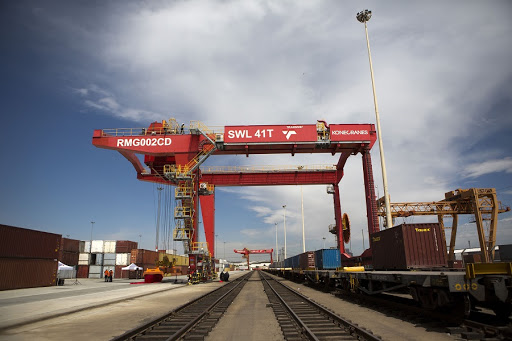Progress on Ramaphosa’s priority projects earns pass score

Three have been completed, about 10 are progressing, eight have hit challenges and five have missed deadlines
Exactly a year ago, on February 11 2021, President Cyril Ramaphosa delivered the 2021 state of the nation address on the verge of the second wave of Covid-19. His speech focused on four overriding priority areas: defeating the coronavirus pandemic, accelerating the economic recovery, implementing economic reforms to create sustainable jobs and drive inclusive growth, and fighting corruption and strengthening the state.
Regarding progress on the action items under these reforms, only three have been completed on time, about 10 are progressing well, eight are experiencing challenges, and five have missed the deadline.
The successes include the corporatisation of the Transnet National Port Authority, increasing the threshold for embedded power generation from 1MW to 100MW, and enabling municipalities to procure power from independent power producers. The first two of these were scheduled for completion by the third quarter of 2021, while the third was to be completed by the first quarter of 2023. Their effect is yet to be seen, but they have been done.
The 10 still on course for completion cover a wide variety of areas and are mostly scheduled for implementation in 2022, so there is enough to measure the performance this year. The most highly anticipated is the unbundling of Eskom into three separate entities, for generation, distribution and transmission. This was completed at end-2021, but some conditions still have to be met. One of those is the restructuring of the power utility’s R400bn debt, which Rothschild advisory has been appointed to undertake by Eskom’s creditors.
The procurement of new generation capacity under the IRP 2019, improving the water-use licence application process, the review of the policy framework and processes for work visa applications, expanding waivers and visa recognition systems and implementing the e-Visa system to 14 countries — all by the end of the first quarter of 2022 — are on track. In fact, the e-Visa system has already been implemented for China, India, Kenya and Nigeria, with the remaining scheduled for implementation by end-March.
Other reforms in progress are the streamlining process for wayleave approvals and the establishment of an independent water regulator, scheduled for the end of June and March 2023 respectively. The establishment of a transport economic regulator through the Economic Regulation of Transport Bill is due to come by end-June.
One that has made the most headlines is the auctioning of spectrum, which was scheduled for completion by the end of the first quarter of 2022. This has been delayed by legal challenges and it seems the deadline will be missed again. The migration of analogue to digital, many years overdue and scheduled for completion by end-March, is also experiencing delays.
The raw-water pricing strategy was supposed to be done by end-2021, but it is still not fully complete. The remaining three still have some time to go. Now earmarked for completion in the first half of 2023 are the establishment of a National Water Resource Infrastructure Agency, resolving institutional inefficiencies in municipal electricity distribution, and resolving institutional inefficiencies in municipal water distribution.
Deadlines that have been missed are the finalisation of the white paper on national rail policy and publishing the list of critical skills, meant for completion by the third quarter of 2021. More so, the implementation of 2,000MW emergency energy has been delayed by court challenges to the Karpowerships deal, and improving Eskom’s energy availability factor to more than 70%, which were scheduled for end-2021.
All things considered, there is visible progress on reform. Failing to implement four on time while having nearly 20 progress — even if about half of those are experiencing challenges — and three completed, is a passing score. There is reason to be optimistic in a sea of negative news. Operation Vulindlela is bearing results.
